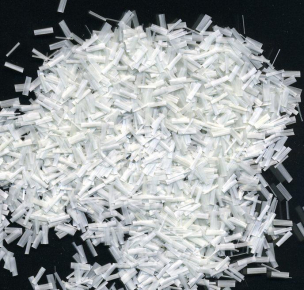
Alkali resistant fiberglass
It has long been known that to create a more durable and flexible concrete mix, you should buy alkali-resistant fiberglass in an online store in advance, because there are the most optimal prices. However, it is possible that this material remains a mystery to some citizens. We will try to answer the most popular questions right now.
Features of alkali-resistant fiberglass (fiberglass)
This type of fiber is artificial – inorganic glass was used to create it, and then an alkali-resistant fiberglass was created by melt (you can buy it today in many trading floors). Interestingly, there are several varieties of this material – E-glass (the most popular) and VMP (more durable varieties).
It is also important to pay attention to the fact that there are a number of brands of fiberglass, each of which has specific properties. These are E (electrical), S (strength), AR (alkali-resistant). In fact, there are a lot of such brands, so it is important to know first how to choose an alkali-resistant fiberglass – you can always buy the right kind of material on the Internet.
Among the key physical properties of alkali-resistant fiberglass are high tensile strength, low elongation at break, and excellent chemical resistance. It is precisely the presence of zirconium dioxide (usually not less than 16%) in the composition that ensures resistance to the alkaline environment of cement. Without this additive, ordinary fiberglass would quickly break down under the influence of hydrated lime in concrete, making the reinforcement ineffective.
Similarity of alkali-resistant fiberglass with basalt fiber
With a careful study of all known types of reinforcing fibers, we can conclude that if it is not possible to buy alkali-resistant fiberglass in Ukraine at a moderate cost, then this material is easily replaced by basalt fiber. Indeed, for a variety of indicators, these types of reinforcing agents are similar, however, as experts advise, you should find out the brand of fiberglass before making a purchase. This will prevent the purchase of products whose alkali resistance will be minimal.
Basalt fiber is also a non-metallic reinforcement material and is valued for its environmental friendliness and temperature resistance. However, fiberglass is often preferred in concrete reinforcement due to its lighter weight and superior compatibility with polymer additives in dry mixes. Furthermore, fiberglass has a more predictable behavior in alkaline environments if it is specifically marked as AR (alkali-resistant).
Cost of purchase of alkali-resistant fiberglass
Today, buying fiberglass online in the UK will not be any problem for ordinary citizens. Many outlets offer customers favorable terms of cooperation, but often come across offers that promise a significant overpayment. Remember that quality should come first, but this does not mean that you will have to give fabulous money for it!
When choosing a supplier, it is recommended to pay attention not only to the price, but also to the certificate of conformity and the manufacturer's reputation. Reliable stores usually indicate the percentage of zirconium dioxide in the product, the length and diameter of the fiber, and provide technical data sheets. On average, the cost of alkali-resistant fiberglass in the UK ranges from £3.50 to £6.00 per kilogram, depending on packaging volume, brand, and technical characteristics.
Application areas of alkali-resistant fiberglass
In addition to use in concrete and cement mortars, AR fiberglass is widely used in facade systems, floor screeds, wall leveling compounds, and repair mixtures. The fiber prevents the formation of cracks during shrinkage, increases the impact resistance of the finished structure, and extends its service life. In modern construction, this material is indispensable for thin-layer finishing systems, where traditional metal reinforcement is not suitable.
Thus, buying alkali-resistant fiberglass is not just a recommendation, but a rational step for those who value durability and reliability in construction work.